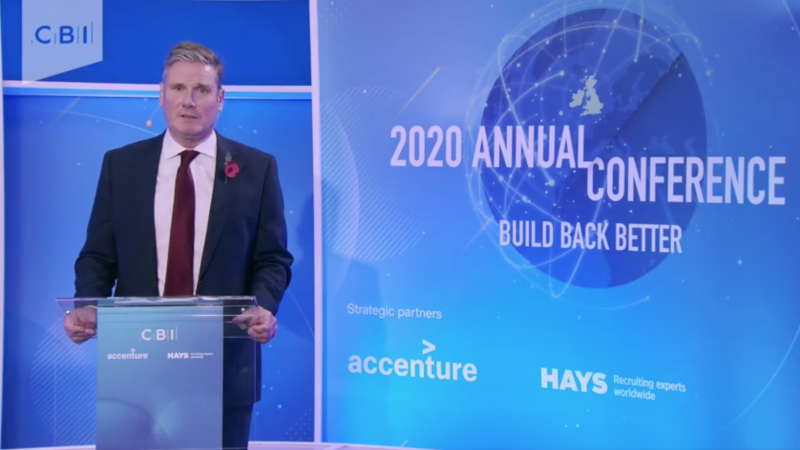
Coronavirus has brought into focus exactly how unscrupulous some of our businesses can be. Britannia Hotels threw out resident staff with no notice. Mike Ashley demanded employees open his Sports Direct stores, arguing they were an essential service. EasyJet paid a £60m dividend to its founder while simultaneously asking the government for a bailout. Wetherspoons moved weekly-paid staff onto monthly salaries in order to wait for their furlough grant. Each of these examples demonstrates unforgivable and inexcusable business practice.
But at the same time, we have also been humbled by businesses acting with integrity, compassion and loyalty. Already struggling food chain Leon has provided key workers with a 50% discount. Upon reopening, Timpson offered free dry cleaning for unemployed people attending interviews. Redrow Homes gave show homes to NHS workers who could not get back to their families. Their honourable conduct, acting with integrity and responsibility to their communities, is the hallmark of the best of British businesses.
Labour’s relationship with business has struggled for the last decade. We have not been seen to be on the side of business, nor have we been trusted to manage the economy in a way that made it easier for them to do business. This culminated in a command and control manifesto, with a flagship pledge to seize company shares. Rebuilding trust in our party and our policies will take time. It requires a change of mindset that appreciates that there is no contradiction between Labour being the party of workers and, at the same time, the party of business. Labour, under our new leadership, is in prime place to rebuild and reconnect.
The Department of Business, Energy and Industrial Strategy is much diminished under this government. The industrial strategy has been consigned to the past. Britain has neither the manufacturing nor the skills strategies it needs to seize the opportunities of tomorrow. The commitment to tackling regional inequality appears to ring hollow. While Keir Starmer started his week talking to businesses at the Confederation of British Industry (CBI) conference, Boris Johnson bottled it, confirming that “f*** business” is his operating mantra. A call between businesses and the Prime Minister last week lasted 21 minutes and ended with Johnson making jokes about roulette.
And less than two months before the end of the Brexit transition period, there is no clarity about what our future relationship will look like with our single biggest trading market. From our largest manufacturing companies to small and medium enterprises (SMEs) who rely on cross-channel trade, we have been forced to watch the theatre of our on-off-on-off trade negotiations. A tactic that prioritises appeasing restless Tory MPs and the right-wing media, ahead of issues relating to the continuity of supply.
But Labour will not just need to provide a critique of Tory failures – the public are seeing that for themselves. We must explain the principles and policies that will firmly re-establish Labour as being on the side of business. In his speech to the CBI, Keir Starmer started to set out his vision for a new contract with business. One that included the message that a “Labour government will back British businesses to grow, to succeed and to expand” and recognising “businesses for what they are – an indispensable part of creating prosperity, good jobs and strong communities”. That new contract with business has to be about working in the long-term interests of our communities and country.
It means setting out clear expectations on behaviour. That businesses must play their part in tackling the climate crisis with ambitious targets and clear accountability. That in their workplaces, businesses must recognise trade unions and support lifelong learning and skills development. That employers must have robust plans to measure and tackle gender and race pay differentials. That they contribute their fair and proper share of tax, rather than avoiding it through complex structures. That businesses establish local supply chains supporting SMEs where possible, and pay suppliers promptly. And that they pay their staff a genuine living wage and ban zero-hours contracts.
Looking at this list, there is nothing a responsible chief executive and board could not sign up to. In fact, many businesses already do some of the above, albeit on a piecemeal basis. But it is not enough for only major employers to behave this way; these standards have to be embedded across the private sector. Labour will need to consider the incentives that will be needed to ensure all elements are adopted.
A simple step would be to hardwire such minimum standards into all public sector procurement. If businesses want to bid for public contracts, they will need to demonstrate a commitment to the highest standards, to ethical conduct and to putting their communities first. Our new contract with business will embed fairness, justice and prosperity in our businesses, workplaces and communities. Changing the business culture in the UK from a race to the bottom to one that upholds the highest standards. And shifting the narrative so that businesses make a profit, but not at the expense of their staff, suppliers and community.
We have a Tory government defined by incompetence. As businesses collapse and unemployment rockets, the outlook for our economy is bleak. Labour is starting to set out a vision for the future. A vision that will rebuild the trust of the business community and will set out to the country that we mean business – responsible business.




More from LabourList
‘Security in the 21st century means more than just defence’
‘Better the devil you know’: what Gorton and Denton voters say about by-election
‘Unity or division’: Starmer’s message to voters in Gorton and Denton